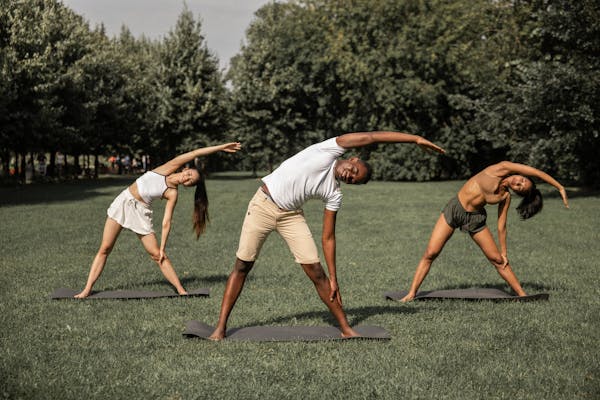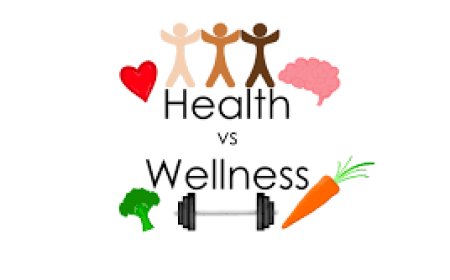From Stress to Strength: Using Exercise as a Tool for Stress Management
In today's fast-paced world, stress has become an inevitable part of daily life for many people. Whether it's work deadlines, financial pressures, or personal challenges, stress can take a toll on our mental and physical well-being if left unchecked. However, amidst the chaos and demands of modern life, there exists a powerful antidote to stress: exercise. Welcome to our exploration of "From Stress to Strength: Using Exercise as a Tool for Stress Management," where we'll delve into the transformative role of physical activity in helping us navigate life's challenges and build resilience in the face of adversit

"From Stress to Strength: Using Exercise as a Tool for Stress Management," where we'll delve into the transformative role of physical activity in helping us navigate life's challenges and build resilience in the face of adversity.
Understanding the Stress Response:
Stress is a natural response to perceived threats or challenges, triggering a cascade of physiological changes in the body known as the stress response. When faced with a stressful situation, the body releases hormones such as cortisol and adrenaline, which mobilize resources and prepare us to respond to the perceived threat. While this response can be helpful in the short term, chronic or excessive stress can have detrimental effects on our health, leading to issues such as anxiety, depression, insomnia, and chronic disease.
The Benefits of Exercise for Stress Relief:
Exercise offers a powerful and natural way to combat stress and its harmful effects on the body and mind. Physical activity has been shown to reduce levels of stress hormones, promote the release of endorphins (feel-good chemicals in the brain), and increase levels of neurotransmitters such as serotonin and dopamine, which are associated with mood regulation and feelings of well-being. Regular exercise can also improve sleep quality, boost self-confidence, and provide a healthy outlet for pent-up energy and emotions, all of which contribute to stress reduction and resilience building.
Finding Your Stress-Relief Workout:
The beauty of exercise as a stress management tool lies in its versatility and accessibility. Whether you prefer high-intensity workouts or gentle movement practices, there's a stress-relief workout to suit every preference and fitness level. Activities such as running, cycling, swimming, and dancing can help release tension and pent-up energy, while mind-body practices such as yoga, tai chi, and qigong promote relaxation, mindfulness, and inner peace. Experiment with different types of exercise to find what resonates with you and feels most nourishing for your body and mind.
Making Exercise a Priority:
Incorporating exercise into your daily routine may seem daunting, especially when you're feeling stressed and overwhelmed. However, making physical activity a priority—even in small doses—can have a significant impact on your ability to manage stress and build resilience over time. Start by setting realistic goals and scheduling regular workouts into your calendar, treating them as non-negotiable appointments with yourself. Remember that even a short walk around the block or a brief yoga session can provide immediate relief from stress and boost your mood and energy levels.
Mindful Movement for Stress Reduction:
Mindfulness, the practice of being fully present and aware in the moment, can enhance the stress-relieving benefits of exercise. By bringing mindful awareness to your movements, sensations, and breath as you exercise, you can deepen your connection to your body and cultivate a sense of calm and centeredness amidst the chaos of daily life. Whether you're focusing on the rhythm of your footsteps during a run, the sensation of stretching in a yoga pose, or the feeling of water against your skin while swimming, mindfulness allows you to fully inhabit the present moment and find refuge from stress.
Building Resilience Through Exercise:
In addition to providing immediate relief from stress, regular exercise can also help build resilience—the ability to bounce back from adversity and thrive in the face of challenges. By facing physical challenges and pushing your limits in your workouts, you develop mental toughness, perseverance, and confidence that carry over into other areas of your life. Over time, you become better equipped to cope with stressors, adapt to change, and navigate life's ups and downs with grace and resilience.
Conclusion:
From stress to strength, exercise offers a transformative path to resilience and well-being in the face of life's challenges. By harnessing the power of physical activity to combat stress, you can cultivate a strong, resilient body and mind that can weather any storm. Whether you're hitting the pavement for a run, flowing through a yoga practice, or dancing your cares away, remember that each step, each breath, brings you closer to a place of calm, balance, and inner strength.
What's Your Reaction?
























































































